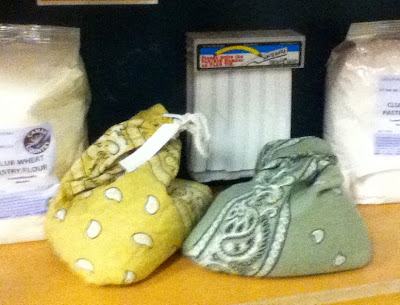“Studies published within the past 15 years show that much of our produce is relatively low in phytonutrients, which are the compounds with the potential to reduce the risk of four of our modern scourges: cancer, cardiovascular disease, diabetes and dementia. The loss of these beneficial nutrients did not begin 50 or 100 years ago, as many assume. Unwittingly, we have been stripping phytonutrients from our diet since we stopped foraging for wild plants some 10,000 years ago and became farmers.”The two common themes, according to Robinson, is plants with the most beneficial phytonutrients have a bitter, sour or astringent taste and early farmers favored plants that were low in fiber and high in sugar, starch and oil.
“The more palatable our fruits and vegetables became, however, the less advantageous they were for our health.”
Robinson recommends selecting corn with deep yellow kernels, cooking with blue, red or purple cornmeal, arugula, scallions and fresh herbs.
“We can’t increase the health benefits of our produce if we don’t know which nutrients it contains. Ultimately, we need more than an admonition to eat a greater quantity of fruits and vegetables: we need more fruits and vegetables that have the nutrients we require for optimum health.”
